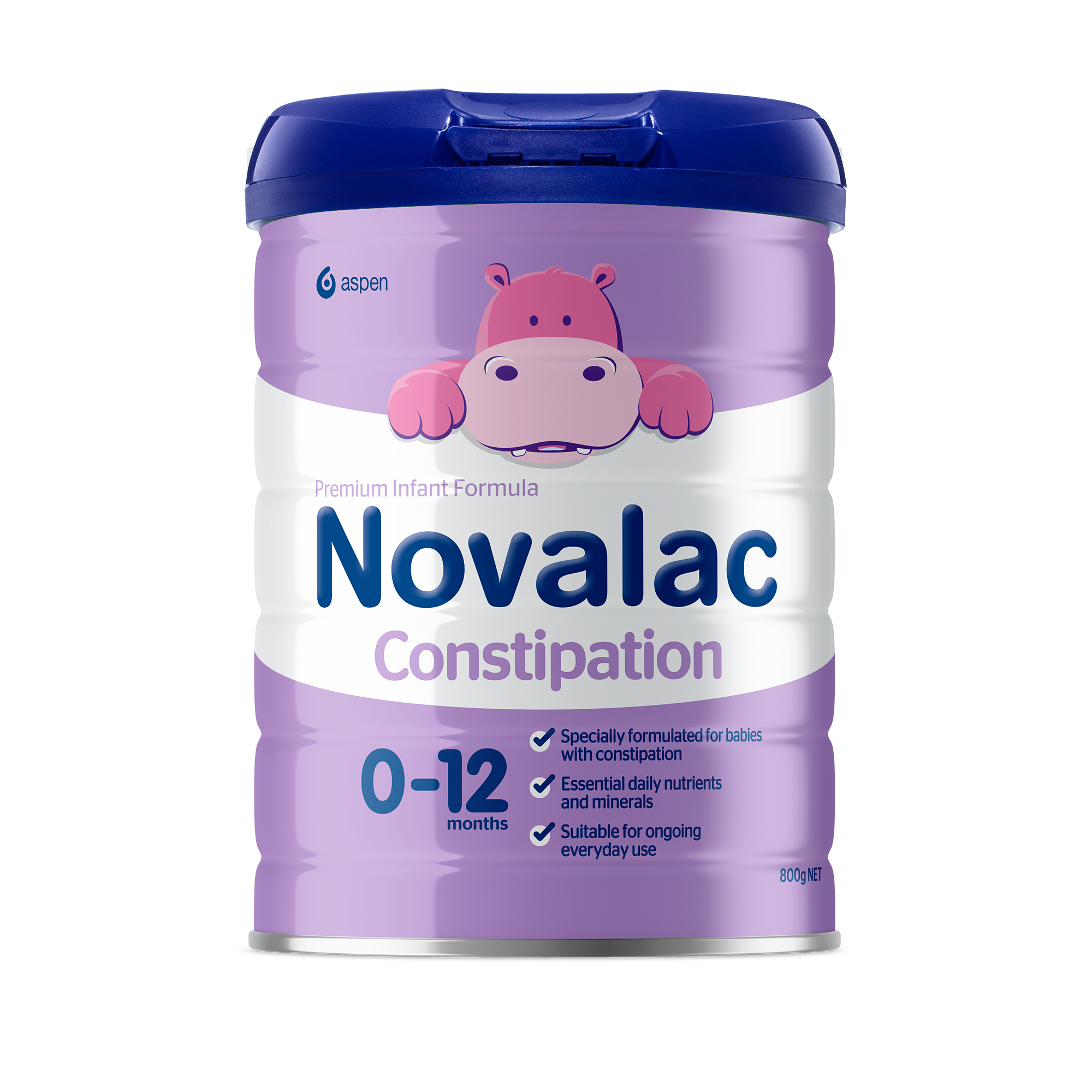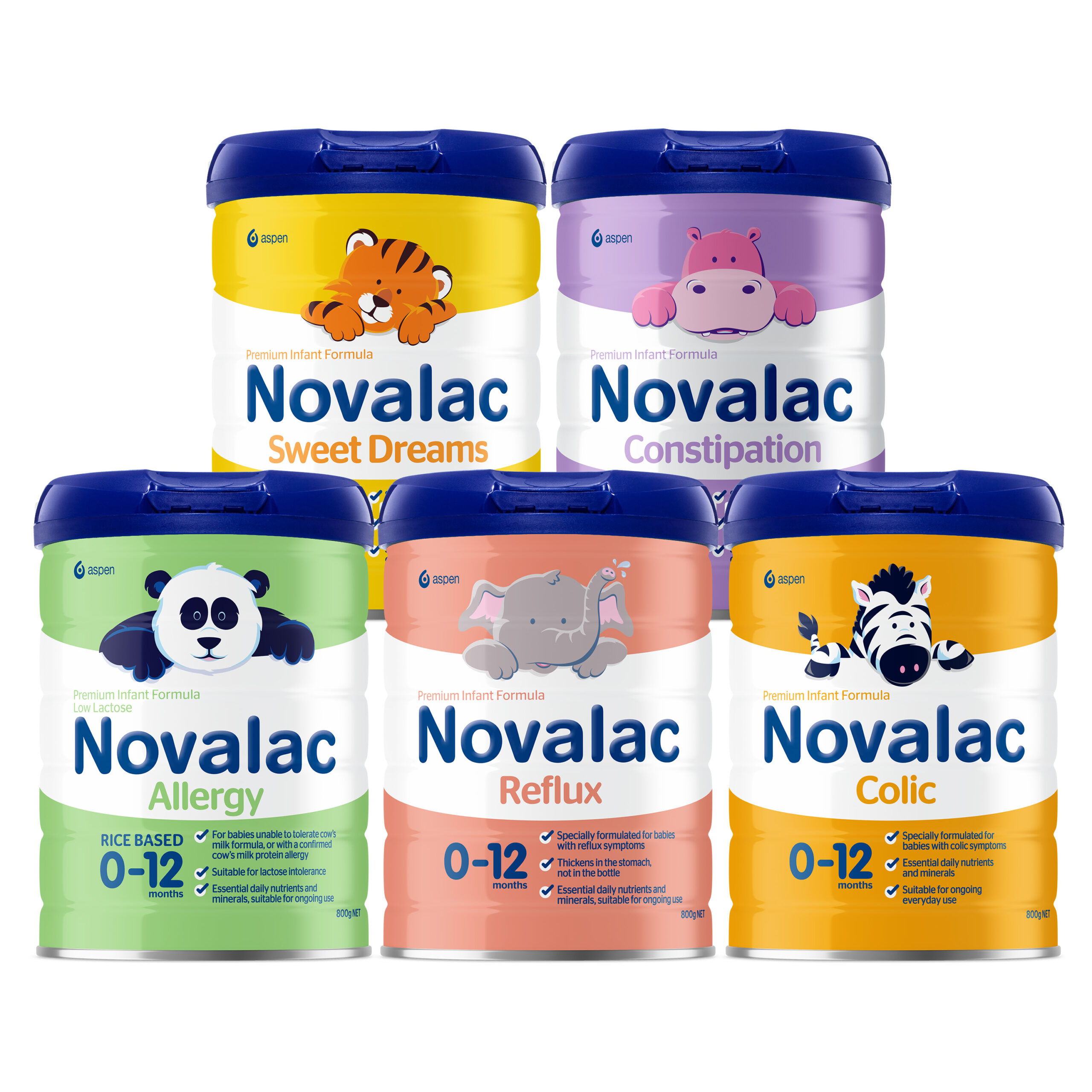Constipation in
Babies
Formula fed babies are more prone to constipation, which may cause painful bowel movements and distress.
What is constipation?
Constipation is a hard stool (poo) that is difficult or painful to pass. Babies vary in how many stools they pass each day, so infrequent bowel movements are not necessarily a sign of constipation. What’s more important is whether the stools have changed in consistency or have become less frequent than usual.
Constipation may cause stools to be larger than normal or hard like pebbles, causing babies pain or discomfort. Babies may also experience bloating and stomach pain.
What causes constipation?
Formula fed babies are more prone to constipation, and sometimes a baby can become constipated after starting solids. If a baby is not feeding well due to teething or illness, they may be dehydrated and become constipated.
In some rare cases, constipation is caused by a more serious underlying medical issue. If you are concerned, it is important to see your doctor, child health nurse or pharmacist for further information.
What are the symptoms of constipation in babies?
There is no such thing as a normal baby stool. Bowel habits vary in babies, and even if some babies poo less frequently than other babies it doesn’t necessarily mean they are constipated. Stools of formula-fed babies are often firmer than in breastfed infants, and constipation is not often a problem for breastfed infants.
What’s more important is whether your baby’s bowel movements have changed in consistency or have become less frequent than is usual for them.
Some signs of constipation are:
- Crying and discomfort, irritability or pain before or during a bowel movement
- Dry, hard, pellet-like stools
- Baby is straining to pass stools
- Foul-smelling wind
- Loss of appetite
- A hard belly
How is constipation managed?
Constipation in babies is managed differently than in adults. For formula-fed infants, cooled boiled tap water may be given in moderation if additional fluids are needed. Exclusively breastfed infants do not require additional fluids up to 6 months of age. A gentle tummy massage or a warm bath may also help.
If your baby’s constipation is causing them distress, it’s important to see your healthcare professional for advice.
What else can I do?
It can sometimes seem hard to know what to do if your baby is constipated, but most of the time it’s due to them not getting enough fluid. You may try the following to help your baby :
- For formula-fed infants, cooled boiled tap water may be given in moderation if additional fluids are needed. Don’t dilute formula if you’re using it
- Perform a gentle bicycling exercise with your baby’s legs
- Try a gentle tummy massage
- A warm bath can help your baby relax

NOVALAC COLIC
Learn more about Novalac Colic




